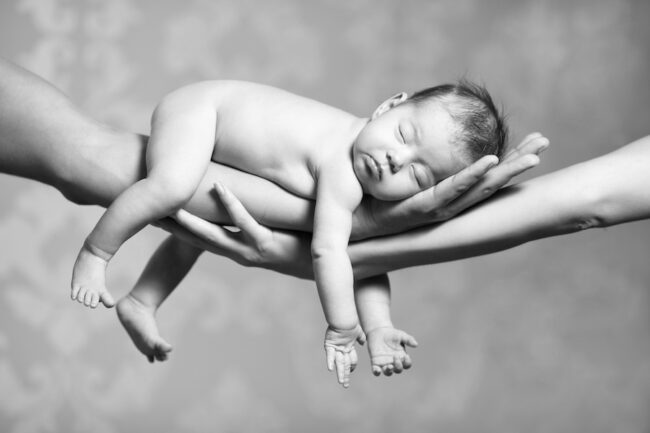Making the case for Gender Equal Parenting: Vital for Early Childhood Development and a transformative tomorrow
04.10.22
At MMM, we believe that sharing the invisible work of caring and educating children more equitably is a quadruple win: essential for early child development (ECD), beneficial for both men and women, as well as foundational for peaceful societies and global economies.

Parents and other home-based caregivers are the first and most important providers of the nurturing care that children need to thrive and develop – care that encompasses health, nutrition, safety, security, and early learning and responsive caregiving.
However, the unpaid work of caring for children in the home, although very intensive during the early years and crucial to ensure that a child develops to their full potential, is not properly recognized as such, nor valued for what it is: foundational.
This critical caregiving work is also inequitably distributed: mothers are usually the primary caregivers and principle influencers in their child’s physical, cognitive and emotional development, with fathers often playing a peripheral role. This inequitable responsibility is at the root of gender inequality: the resulting time poverty restricts women’s opportunities for education, participation in economic and public life, as well as their personal and professional aspirations.
Gender equality begins in the home: when men and women, fathers and mothers share the domestic and care work more equitably, women’s lives are transformed: not only do they have more time to participate in the labour force or engage in income generating activities, which promotes their financial independence, but it improves their self-confidence and respect from people around them. In turn, this leads to better maternal mental and physical health, and improved maternal-child interactions, positively impacting the child’s neurodevelopment.
Sharing the care within the family also directly benefits children and men.
Research over several decades has consistently shown that a young child’s environment deeply affects their physical, cognitive, social, and emotional development. There is increasing evidence around the positive impact of promoting men and women’s shared childcare for children’s physical and mental health and wellbeing, learning and development, and their interpersonal relationships into adulthood.
According to MenCare – the global Fatherhood Campaign – sharing unpaid family care work and engaging men as involved fathers can also lead to stronger and more equitable partner relations, as well as a reduction in violence against women and children. A harmonious, secure and violence-free home environment is essential for early child development – and ultimately for building a more caring and peaceful society.
In the coming months, and with the support of some of our key ECD partners, MMM aims to make the case for gender equal parenting as vital for our future, including at the upcoming World Conference on Early Childhood Care and Education (WCECCE) which will take place in Tashkent 14-16 November 2022.
Our aim is to promote gender equal parenting as a key strategy to:
- Transform gender norms and achieve gender equality for the benefit of both men and women
- Fulfill children’s rights to receive nurturing care and education, and to thrive in a secure and loving environment
- Improve family relations, reduce violence and ultimately build peace
→ More information on our WCECCE side-event is available in this article
The New EU Gender Equality Roadmap : A Call for Inclusion of Mothers
04.03.25
The European Commission’s initiative on a new Gender Equality Roadmap post-2025, marks a significant step forward in addressing gender disparities across the European Union. Make Mothers Matter (MMM
Breaking the Cycle: Gender Equality as a Path to Better Mental Health
18.03.25
The Council of the European Union has taken a decisive step in recognising the vital connection between gender equality and mental health.
Europe Must Listen to Mothers: Our landmark report heads to the European Parliament
28.08.25
On 22 September 2025, the voices of mothers will take centre stage in Brussels. For the first time, Make Mothers Matter (MMM) will present its State of Motherhood in Europe








